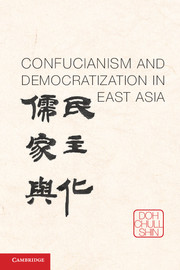8 - Support for Democracy
from Part iv - Embracing Democracy
Published online by Cambridge University Press: 05 June 2012
Summary
Residents of authoritarian and democratizing countries do not necessarily become fully democratic citizens on gaining an accurate understanding of what is democracy, even when that understanding includes how democracy differs from its alternatives. They must also embrace democracy as the most preferred regime type and democratic practices as the most preferred means of governance. Thus the belief that democracy is preferable to all of its alternatives is widely regarded as the most fundamental of democratic political orientations (Diamond 2008a; Linz and Stepan 1996; Shin and Wells 2005).
The extent to which citizens hold this belief has a direct connection to the pace and possibilities for democratic development (Fails and Pierce 2010; Norris 2010; Qi and Shin 2011; Welzel 2007); because democracy is government by the people and for the people, changes in a democratizing country's laws, institutions, and other formal rules will matter little in the real world of politics if the citizens do not support their country's democratization. For this reason, there is a growing consensus in the literature on third-wave democracies that democratization is incomplete unless support of democracy is unqualified and unconditional among an overwhelming majority of the mass citizenry (Booth and Seligson 2009; Bratton, Mattes, and Gyimah-Boadi 2005; Norris 1999, 2011; Rose, Mishler, and Haerpfer 1998; Shin 2007, 2011).
- Type
- Chapter
- Information
- Confucianism and Democratization in East Asia , pp. 267 - 314Publisher: Cambridge University PressPrint publication year: 2011

